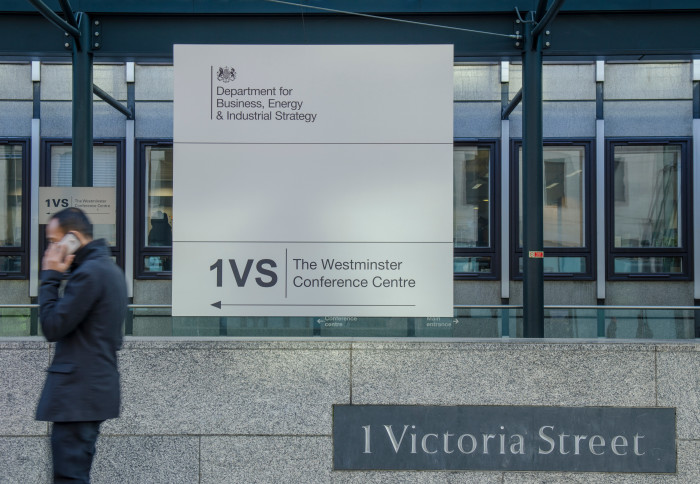Imperial convenes industry and government partners to discuss innovation policy

Imperial and CaSE held a roundtable with industry, academic and Government partners to discuss next steps for UK innovation policy.
Imperial and the Campaign for Science and Engineering (CaSE) jointly organised a digital roundtable discussion on university-business collaboration and innovation policy measures this week. This brought together civil servants from the government department for Business, Energy and Industrial Strategy (BEIS) with key industry and science organisations, including Imperial's industry partners ABB, BP, P&G, Sainsbury's and Shell.
The discussion examined the current challenges and opportunities innovative organisations are facing, particularly in light of COVID-19 and the UK leaving the EU, with a view to inform the government’s implementation of the UK R&D roadmap. The roadmap sets out the government’s science policy agenda and states its intention to encourage and support collaborations between universities and businesses.
Imperial’s Vice-Provost Professor Nick Jennings co-chaired the roundtable, alongside CaSE Director Dr Sarah Main. Opening the discussion, he emphasised the importance and breadth of Imperial’s innovative activities.

Translating Imperial’s world-class research into products and technologies which benefit people across the UK is key to this - as illustrated by the interactive map we recently published that highlights just some of our research and innovation collaborations that are benefiting communities across the UK. Professor Jennings also explained how integral an enterprising culture is to Imperial’s education and research community, citing the Enterprise Lab and the White City campus as specific examples.
The discussion considered a set of issues for government to take into account as it develops its next steps on the innovation agenda. Simplifying the current landscape of innovation support, such as early-stage funding for business and schemes such as innovation loans and the future funds business support schemes, was a key point. Participants also felt that the UK had many great examples of innovation collaboration that could be learnt from.
A strong theme was that businesses often look to academic partners for their ‘discovery’ science needs and that UK has a real competitive advantage here with its world-class expertise of individuals and organisations. It was felt that maintaining the UK research base's competitive advantage must be a priority, in particular against the backdrop of the UK leaving the EU.
Participants also discussed the need for more support to help researchers looking to spin-out their ideas and noted the importance of postgraduate researchers in this process and wider university-business interaction.
Encouraging researchers to move through business and academia was discussed as a way to increase the interconnectedness of the innovation ecosystem, spreading ideas and increasing skills and networks. This was also discussed in context of the UK Government’s ‘levelling up’ agenda: providing schemes across the entire breadth of the UK can help spread and retain highly-skilled researchers in all parts of the country.
A summary note of the roundtable has been published and Imperial and CaSE will work with BEIS on taking the event's recommendations forward.
Article text (excluding photos or graphics) © Imperial College London.
Photos and graphics subject to third party copyright used with permission or © Imperial College London.
Reporter
Lisa Bungeroth
College Headquarters